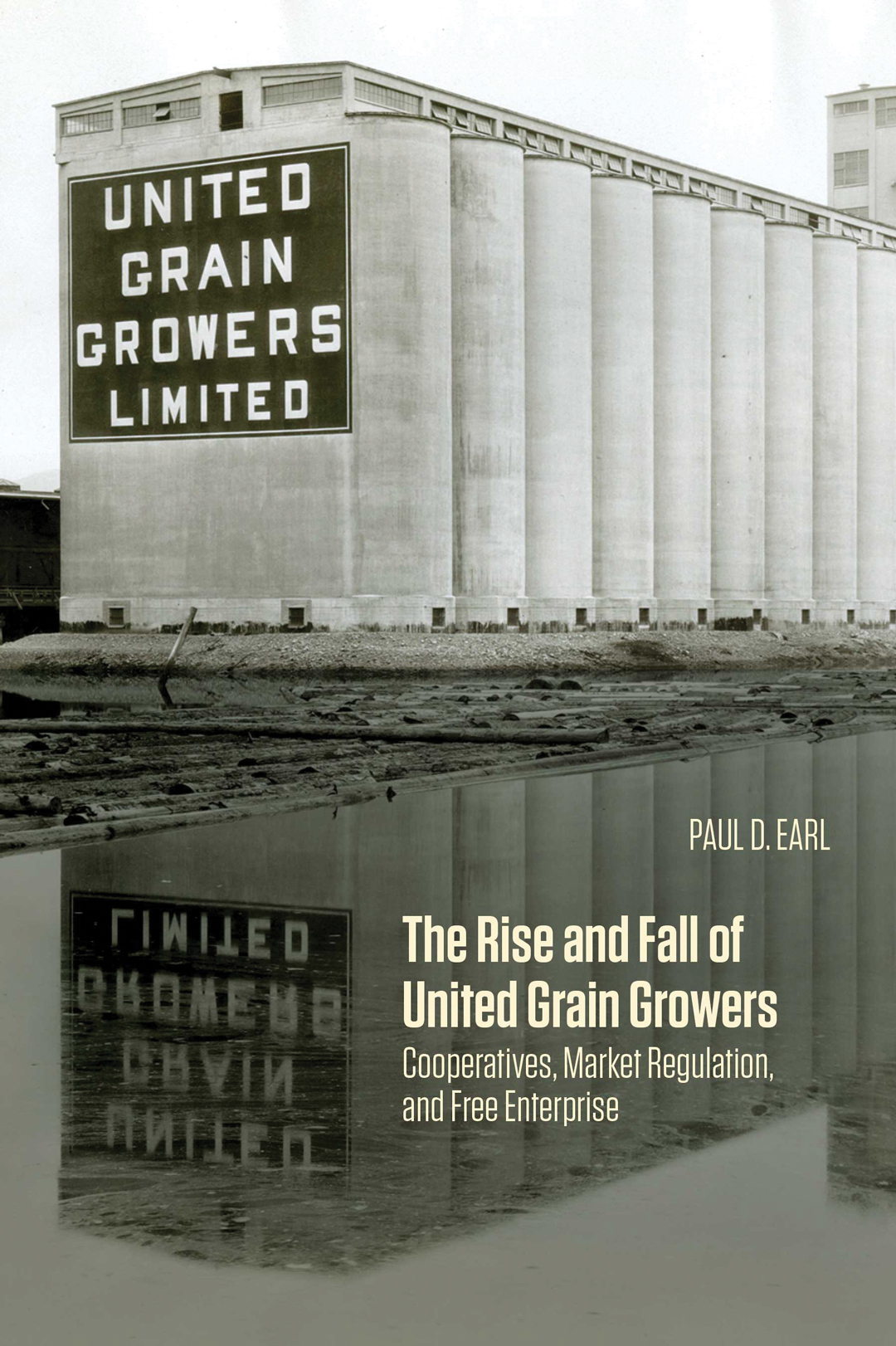HOW THE MIGHTY HAVE FALLEN
BY IAN DOIG • PHOTOS COURTESY OF UNIVERSITY OF MANITOBA PRESS
A senior scholar at the University of Manitoba’s Asper School of Business, Paul D. Earl is the author of The Rise and Fall of United Grain Growers: Cooperatives, Market Regulation, and Free Enterprise. His extensive industry experience includes having worked for United Grain Growers (UGG), which became Agricore United. He is also the author of Mac Runciman: A Life in the Grain Trade.
Originally intended to mark the company’s 100th year in 2006, when it was purchased by the Saskatchewan Wheat Pool in 2007, Earl rethought the project. His recently released book also examines the competing forces of free enterprise, state and co-operative control that shaped the Canadian grain industry in the 20th century and why the company self-destructed.

Author Paul D. Earl was forced to rethink his history of the UGG when the company was sold to the Saskatchewan Wheat Pool.
GrainsWest: How did you feel about expanding the book from its original concept?
Paul Earl: The major expansion was understanding the company’s demise. When I started the book, Agricore United was the largest grain company in Western Canada. I’d never questioned that a company should work for its shareholders, then had to, when it looked as though that emphasis had been part of the reason the company disappeared.
GW: Did you get the sense you were capturing history as it unfolded?
PE: Here was this company—and, incidentally, 100 years of farmer control in the grain industry—that was disappearing in the middle of my project. It plunged me right into history in the making.
GW: You describe the company as having had a unique role buffering competing ideologies. Did employees view it this way?
PE: The company had been a supporter of change in the industry, particularly in the ’70s when Mac Runciman was president. His predecessor John Brownlee had been a strong supporter of the Crow Rate and the Wheat Board. Mac came in with basically that position and had to change it. He became a critic of the Crow and to some extent the Wheat Board.
GW: You address the wisdom of the sale and of shareholder profit trumping all. Why is this an important discussion?
PE: The Wheat Board and transportation policies had completely centralized and thwarted market forces. I was one of the warriors through the ’70s, ’80s and ’90s who fought against that. Then, when the company was taken over, my first question was, “why did you sell the company?” The answer was, “we had to, to maximize shareholder value.” I realized the company had balanced between contending ideologies, and I thought it had a continuing, critical role to play. Why it hadn’t opposed the takeover more vigorously puzzled me.
GW: How did the story of the company fit into the evolution of the grain marketing sector?
PE: Shareholder primacy did not drive free enterprise, particularly through the middle part of the 20th century. There was a greater appreciation in society at large about the importance of the public sector, of regulation.
Later in the 20th century, the pendulum swung back. Shareholder primacy tended to be an extreme view of the purpose of a corporation. [This idea] hadn’t existed since probably the 1890s. There was irony in the fact this company, which had striven for so long to adapt to a much more free-market industry, was consumed by an extreme view within that ideology.
GW: Why should aggies read the book?
PE: [It’s] a comprehensive history of the way that debate played out and the results it had. I’d also hope they would see there was a place in the industry, even today, for an organization like Agricore United, like UGG, that still said, yes, we want to have a free-market system, but free markets don’t always benefit everybody. So, we need something in the middle that tempers some of those extremes.
The book is available from uofmpress.ca and Amazon.







Comments